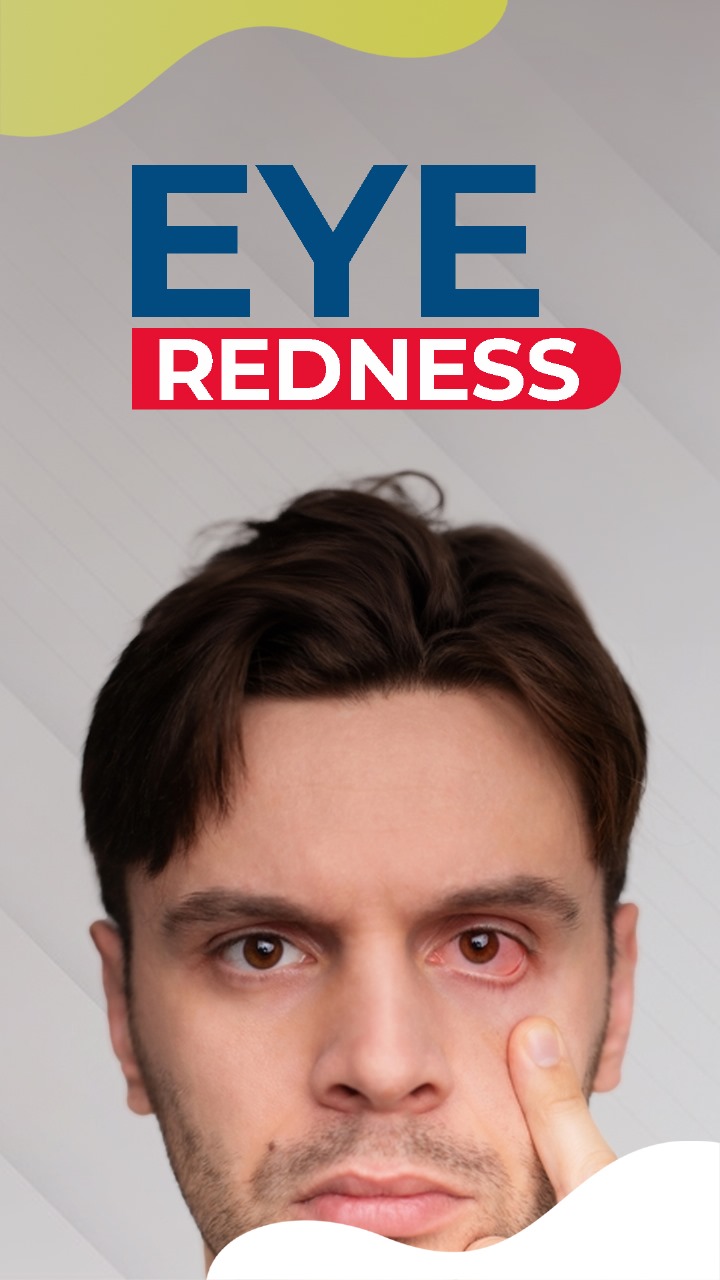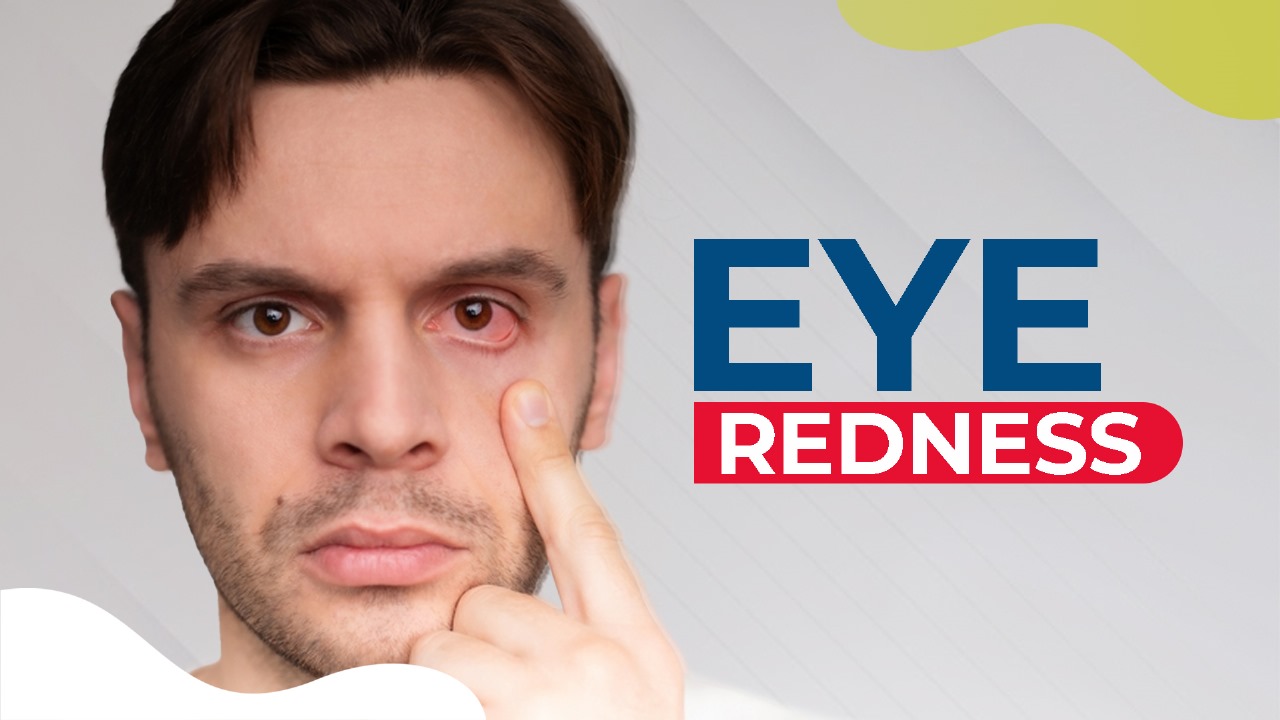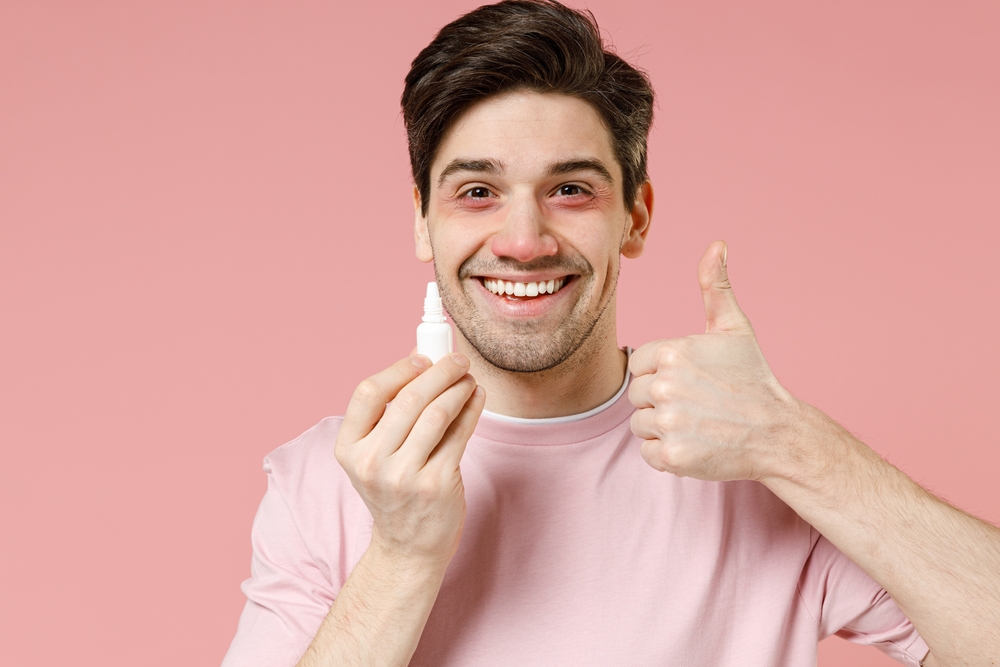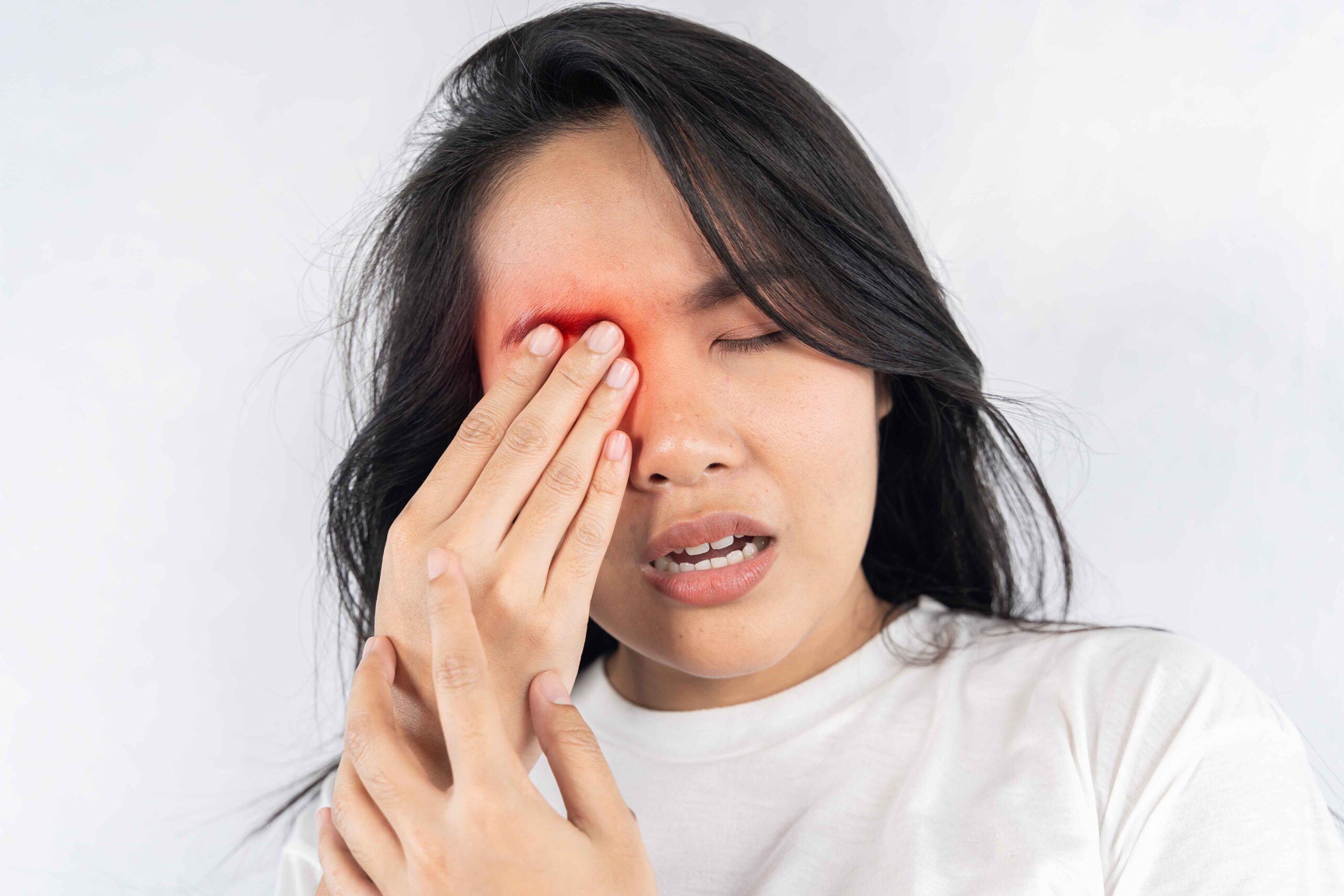

Understanding Eye Redness: Common Causes and Effective Treatments
Eye redness is a common concern that can affect people of all ages. Whether it’s due to fatigue, allergies, or something more serious, the discomfort and irritation caused by red eyes can impact your daily life. In this blog, we’ll explore the answers to questions like “What causes red eyes?”, “How do I treat red eyes?”, and “How to prevent red eyes?”. From effective treatments to prevention strategies, we’ll cover everything you need to know about keeping your eyes healthy and avoiding irritation.
If you’re dealing with chronic eye redness or experiencing symptoms like burning, itching, or pain, it might be time to consult an expert. Dr. Ruchika Kedia-Arora’s “Arora Eye Clinic” is dedicated to providing personalized care to help you regain comfort and clarity in your vision.
What Causes Red Eyes?
Eye redness can result from various factors. It occurs when the blood vessels on the eye’s surface expand, often due to irritation or infection. Some common causes include:
- Allergies: Pollen, dust, and pet dander are major triggers for eye allergies, leading to redness, itching, and watery eyes.
- Dry Eyes: Lack of moisture can lead to redness and irritation, especially in dry or windy environments.
- Conjunctivitis: Often called “pink eye,” this infection can cause inflammation and noticeable redness in the eyes.
- Fatigue and Lack of Sleep: Overworking your eyes can lead to redness. This often occurs after extended screen time or inadequate rest.
- Infections: Bacterial or viral infections can cause intense redness and require immediate medical attention.
- Environmental Factors: Smoke, pollution, and chemical exposure can irritate the eyes, causing redness.
Recognizing the root of your eye redness is essential to finding the right treatment and preventing further discomfort.
How Do I Treat Red Eyes?
When you ask, “What are the treatments for red eye?” the answer largely depends on the underlying cause. Here are some effective ways to address eye redness:
- Over-the-counter Eye Drops: If allergies or dry eyes are the cause, eye drops formulated for these specific issues can provide quick relief. However, be cautious about long-term use of eye drops for redness as they may cause rebound redness.
- Antihistamines: For eye redness triggered by allergies, antihistamines can reduce symptoms like itching, swelling, and redness.
- Hydration: Ensuring proper hydration helps to maintain the moisture level in your eyes, preventing them from drying out.
- Prescription Medications: If the redness is caused by an infection, your doctor may prescribe antibiotic or antiviral medications. Consult an expert like Dr. Ruchika Kedia-Arora to determine whether prescription medications are necessary.
- Resting Your Eyes: If fatigue is the culprit, giving your eyes time to rest can help relieve the redness.
It’s important to consult a professional if your eye redness persists or is accompanied by pain, vision changes, or discharge.

How to Avoid the Condition?
Preventing eye redness is possible if you’re aware of the triggers and adopt habits that promote eye health. Here are some essential tips on “How to avoid the condition?” and “How to prevent red eyes?”:
- Maintain Good Hygiene: Wash your hands regularly, especially before touching your eyes. This simple practice can prevent the spread of infections that cause redness.
- Limit Screen Time: Extended periods in front of a screen can lead to eye strain and redness. Follow the 20-20-20 rule: every 20 minutes, look at something 20 feet away for 20 seconds to reduce strain.
- Use a Humidifier: Dry environments can lead to dry eyes, increasing the likelihood of redness. Using a humidifier can help maintain moisture levels in the air.
- Wear Protective Eyewear: If you’re exposed to dust, wind, or chemicals, wearing protective eyewear can shield your eyes from irritants.
- Stay Hydrated: Drinking enough water throughout the day helps keep your eyes moist and prevents dryness.
- Avoid Contact Lenses for Extended Periods: Overuse of contact lenses can lead to eye redness. Follow your eye doctor’s recommendations for wearing and cleaning your lenses properly.
By making these small changes, you can significantly reduce the chances of developing red eyes.

Eye Redness and Itching
A common combination of symptoms, eye redness and itching, is often associated with allergies or irritants. Allergic reactions to pollen, pet hair, or mold can cause your eyes to become itchy and red. If your symptoms persist despite using over-the-counter treatments, it might be worth seeking professional care. Dr. Ruchika Kedia-Arora offers tailored treatments to address both eye redness and itching, helping you find long-term relief.
Eye Redness and Burning Symptoms
If you’re experiencing eye redness and burning symptoms, it could be a sign of more than just irritation. These symptoms may point to dry eye syndrome, chemical exposure, or even an infection. In some cases, conditions like blepharitis (inflammation of the eyelids) can cause these symptoms. A thorough evaluation from an expert like Dr. Ruchika Kedia-Arora is crucial to determine the right treatment, which may include medicated drops or lifestyle adjustments.
Eye Drops Redness Side Effects
While eye drops for redness can offer quick relief, some may come with side effects, especially if used too often. Rebound redness is a common side effect of decongestant eye drops, which can worsen the redness if used frequently. This is why it’s important to consult a professional before relying on any over-the-counter eye drops for long-term use. Dr. Ruchika Kedia-Arora can recommend the safest and most effective solutions based on your specific needs.
What to Do for Eye Redness and Pain
Eye redness accompanied by pain should never be ignored, as it could signal a serious condition such as glaucoma, uveitis, or a corneal ulcer. If you’re wondering “What to do for eye redness and pain,” the best course of action is to seek immediate medical attention. Ignoring these symptoms can lead to permanent damage, so a timely diagnosis and treatment plan from Arora Eye Clinic can protect your vision and alleviate discomfort.
How Arora Eye Clinic Can Help
At Arora Eye Clinic, Dr. Ruchika Kedia-Arora is dedicated to providing comprehensive eye care tailored to each patient’s needs. Whether you’re dealing with chronic eye redness, allergies, or more serious eye conditions, Dr. Ruchika Kedia-Arora’s expertise and compassionate care can make all the difference.
- State-of-the-art Diagnostics: With advanced diagnostic tools, the clinic offers precise evaluations of the causes of eye redness.
- Personalized Treatment Plans: From prescription medications to lifestyle advice, Dr. Kedia-Arora creates individualized treatment plans to help manage symptoms and improve eye health.
- Preventive Care: The clinic emphasizes preventive care, offering guidance on “How to prevent red eyes” and keep your eyes healthy for the long term.
By choosing Arora Eye Clinic, you can rest assured that your eye health is in the best hands.
Eye redness may seem like a minor inconvenience, but it can indicate underlying health concerns. Whether you’re dealing with itching, burning, or pain, it’s important to take eye redness seriously. Now that you know the red eyes: causes and treatment, it’s easier to manage the condition effectively. If you’re still unsure about what causes red eyes or how to treat them, consider visiting Dr. Ruchika Kedia-Arora’s “Arora Eye Clinic” for a professional evaluation and treatment plan.
Frequently Asked Questions
Red eyes can result from allergies, infections, dry eyes, fatigue, or environmental factors like smoke and pollution.
Treatment depends on the cause, but common remedies include eye drops, cold compresses, antihistamines, and rest.
To prevent red eyes, maintain good hygiene, limit screen time, use protective eyewear, and keep your eyes hydrated.
While over-the-counter eye drops can help, prolonged use may cause rebound redness. Consult a eye doctor in thane if redness persists.
If you experience redness with pain, seek immediate medical attention, as it could indicate a serious condition.
Yes, allergies are a common cause of red, itchy eyes. Antihistamine eye drops and avoiding allergens can provide relief.
Overuse of redness-relieving eye drops can cause rebound redness and other side effects. Use them sparingly or consult a doctor.
Dryness and redness often result from inadequate moisture in the eyes, which can be addressed with artificial tears or hydration.
See a doctor if redness is accompanied by pain, vision changes, or persists for more than a few days.
Arora Eye Clinic offers personalized treatment plans that may include medicated drops, lifestyle adjustments, and preventive care.
